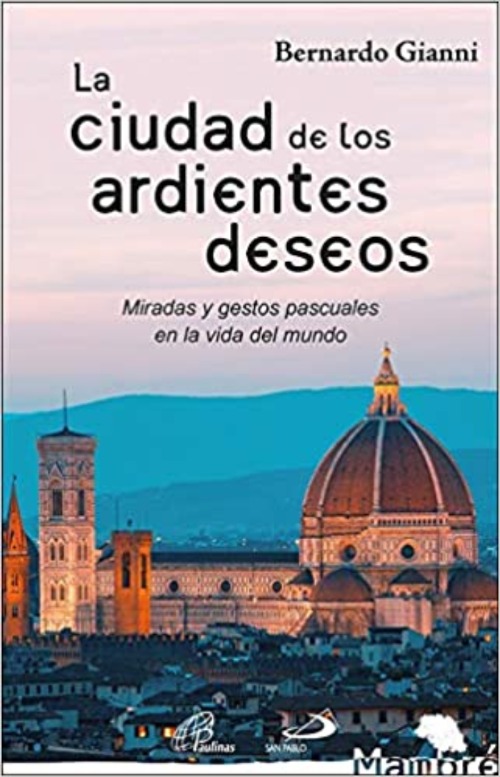
We could affirm that the thesis of the work is that the Christianity lives in the city and is destined to live in the city in a century of megalopolis. However, the Christianity in the city cannot be reduced to an urban pastoral, a religion of services. Christians have to living in the world. In the prayer Jesus asks his Father not to take them out of the world (Jn 17:15). If they have to be there, they must also be in the city without being worldly.
There was a time in history when Christianity was associated with the fields and the deserts, with the silence and meditation of monks and hermits. In theory, these settings were more conducive to contemplation. We should remember, however, that Christianity arose in a remote corner of the world. Roman Empire and expanded rapidly by a Mediterranean urban civilization. Gradually, it filled the cities, where it multiplied like the seed of which the Gospel speaks (Mk 4:26-29).
They were very appropriate to be preached before the archbishop of Buenos Aires, the megalopolis of the southern hemisphere, and later the bishop of the head of Christendom. All in all, it is a book that could be described as poetic theology, undoubtedly due to the influence of a great Florentine poet of the 20th century, Mario Luzi, whose poems serve as a thread to the chapters. Another interesting contribution are some writings and speeches of Giorgio La Pira, that unforgettable mayor of Florence who is road to the altars.
It will not be strange that some people do not understand this book and even qualify it as utopia, both in times of pandemic as in the moments when crowds fill streets and squares. It seems to me that this qualifier is the child of fear, often born of the perception that cities and their people are cold and hostile.
We do not realize that the problem is in us. Abbot Gianni puts the question well: we tend to place ourselves in a screen to escape the gaze of others. In my opinion, this is a desolation greater than that of deserted streets in times of pandemic. I would add that some Christians, unwittingly, see in the city only the representation of a new and terrible Babylon, similar to that of the Apocalypse, and would like to flee from it.
On the other hand, the author of the book emphasizes that the christian loves reality and knows how to transcend it. Otherwise, the heavenly city, of which Mayor La Pira spoke so much, would be reduced to an earthly utopia.
Abbot Gianni often quotes the Pope Francisin particular its exhortation Evangelii Gaudiumwhere he reminds us that reality is superior to the idea.
It is true that the Christian has to meditate on what happened on Calvary, but Abbot Gianni also speaks to us of Mount Tabor, where the essential message is that of "This is my Son beloved, in whom I am well pleased, listen to him." (Mt 17:5).
There is also a Tabor Road that passes through let Christ be at the center of history and of our lives. We must put ourselves in the hands of God and flee from the arrogance of those who believe themselves to be gods, instead of men, as happens to the prince of Tyre, mentioned in the book of Ezekiel (28:1-10), and whom the author quotes expressly.
I also liked very much the chapter that invites you to shake hands, something disconcerting in times of pandemic and of post-pandemia. Shaking hands next to the abbey of San Miniato appears in a poem by Mario Luzi. You have to shake hands because Christ has not come to save men separately. He has built a people, a community. The Christian God is Trinity and communion.
Hence, the abbot's reference to Psalm 132, where it is expressed that it is good for the brothers to be together, is opportune. Pope Francis has underlined this very well in Evangelii Gaudium (270), where it is stated that one cannot be a Christian by keeping a prudent distance from the wounds of the Lord.. It is necessary to come into contact with the existence of others and to know the strength of tenderness.
This makes it easier to understand that Christianity live in the city, but one must keep one's eyes wide open. The quote from the abbot, who lived in the 12th century, is very timely: Ubi amor, ibi oculos. Only in this way can the city be built.
Antonio R. Rubio Plo
Degree in History and Law
International writer and analyst
@blogculturayfe / @arubioplo
Published in "Church and new evangelization".